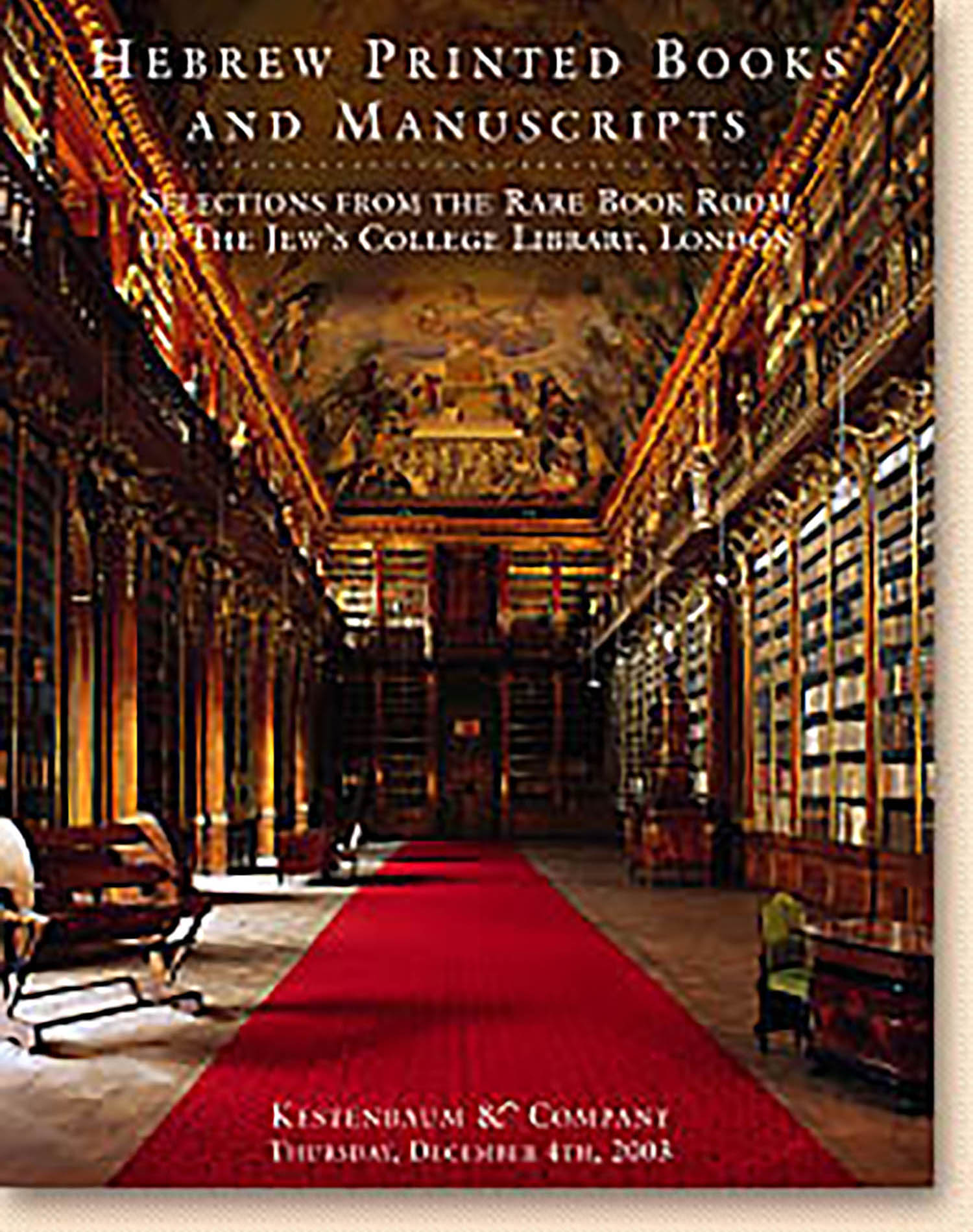Dialoghi di Amore.

AUCTION 21 |
Thursday, December 04th,
2003 at 1:00
Kestenbaum & Company Holds Inaugural Auction of Hebrew Printed Books & Manuscripts at Their New Galleries
Lot 2
ABRABANEL, JUDAH (“Leone Ebreo”)
Dialoghi di Amore.
Venice: Georgio de Cavalli 1565
Est: $300 - $500
PRICE REALIZED $3,250
Eldest son of Don Isaac Abrabanel and one of the foremost philosophers of the Renaissance. Commonly known as Leone Ebreo, his reputation rests upon the Dialoghi, among the most popular philosophical works of the age. See C. Roth, The Jews in the Renaissance (1959) pp.128-36.
Judah Abrabanel (c. 1460-after 1532), physician, poet and Renaissance philosopher, was the eldest son of Don Isaac Abrabanel. Commonly known as Leone Ebreo, his reputation rests upon the Dialoghi, among the most popular philosophical works of the age. Exiled from Spain, Judah Abrabanel settled in Italy and became one of the major standard-bearers of the Italian Renaissance. His central thesis in the Dialoghi is that love is the foundation of the world. Judah Abrabanel spurned the rationalism of the Aristotelian-Maimonidean system and was more attracted to the mystical world of ideas of the medieval Kabbalah, with its strong inclination toward neo-Platonism. See I. Zinberg, A History of Jewish Literature, Vol. IV, pp. 15-20; C. Roth, The Jews in the Renaissance (1959) pp. 128-36.
Aldus Manutius, patriach of a dynasty of humanist-printers, revolutionized printing methods. He moved from the Monastic tradition of the folio format of the book, and was the first to produce books in a pocket-size (8vo), intended for personal usage. His books are particularly prized by bibliophiles.
